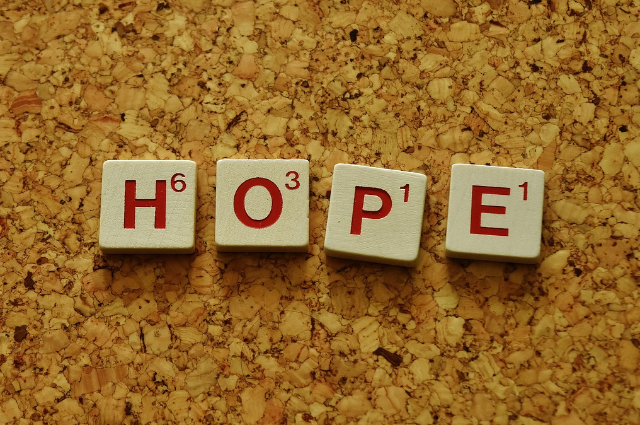
‘Hope’ is a quiet yet powerful word. It is with what we begin and end our day. It is nothing like joy or anger; it sits quietly at the back of our mind whispering, “Not that everything will be okay, but that maybe, somehow, it can be.” In a world where fear and failure are always under the spotlight, hope asks us to believe that better days are coming.
Hope isn’t just a word; it’s a feeling, an emotion that is necessary for survival. You can have good and bad days, but without hope, you can’t live! You hope that the sun rises tomorrow morning, and you hope your body wakes up to see it in the sky. Hope is a powerful word that has lit the path for movements, helped people overcome crises and shaped the course of history.
This article explores what makes hope not just a feeling, but a reckoning force which drives us on the path of perseverance, imagination, and change!
Philosophical Foundations of Hope
Hope is something that can make you feel brave in the direst situations or vulnerable even in the comfort of safety. Hope has long been a subject of fascination for philosophers across cultures. It is both a deeply personal emotion and a collective force that shapes societies. While Western philosophy often defines hope in terms of morality, faith, or survival, Eastern philosophy offers a spiritual and cyclical understanding, rooted in karma, dharma, and the pursuit of liberation.
- In Ancient Greek, hope is seen as a double-edged sword, being the last thing left in the jar. Was it a gift to sustain humanity, or a cruel trick to prolong suffering? The ambiguity lingers.
- In Indian traditions, hope is not always named directly, but it is deeply embedded in concepts like āśā (aspiration), shraddhā (faith), and karma (action with intent). It is a flame that guides the soul through cycles of birth and death.
- Chinese philosophy states that hope is a way of trusting the flow of life, rooted in surrender and balance.
- In Japanese philosophy, the concept of wabi-sabi, the beauty of imperfection and impermanence, suggests that hope lies not in perfection, but in acceptance.
Scientific Perspectives on Hope
While philosophy gives hope its moral and metaphorical meaning, science tries to define it on the basis of reality. Hope gives us positivity and the belief that all will be well, even when everything seems to be against us. It shapes how we think, feel and act in the face of challenge.
- Hope acts as a medicine for anxiety, depression, and stress. The best example is of the COVID-19 pandemic, when the world was hopeful of a bright future even as millions of people succumbed to it.
- Students who hope for the best show improved academic outcomes, better focus, and stronger motivation.
- It acts as a force to motivate people on a large scale during unforeseen circumstances.
Hope in Action: Historical Triumphs of Optimism
From providing optimism and a reason to believe in the good to leading countries to freedom, hope is not just a feeling; it’s a powerful force!
- Helen Keller, an American girl, was deaf and blind from a young age. With efforts from her mother and childhood teacher, she became a renowned writer and activist. Her life is an example that hope, along with education and support, can help to overcome life’s challenges.
- Martin Luther King Jr.’s idea of racial equality in the United States was based on hope; hope that through non-violent protests, civil rights in America would be reshaped.
- The Indian freedom struggle is perhaps the biggest example in history wherein the entire country walked on the path of satyagraha (truth-force) with the hope that one day their homeland would be free from colonial rule.
- After two world wars, the United Nations was formed, that too out of hope. It was made with the hope that nations would come together to fight humanity’s problems and build a better future.
The Dangers of False Hope
As mentioned earlier, ‘hope’ is not just a word; it is a powerful emotion and a force that drives us in our daily lives. But when used wrongly, it can have drastically opposite outcomes as well. One of the biggest destroyers of mental peace is False Hope!
False hope is a belief that we try to trust when we aren’t able to accept reality. 99% of the time, we know the inevitable, but that 1% makes us hope for the impossible. And when that 1% falls off, it leaves us more shattered than not having it would have. False hope feels comforting in the short term, but over time, it leads to disappointment and weakens our ability to trust anyone, including ourselves, resulting in anxiety and depression. One example can be of political leaders who make claims of development, giving hope to their people that changes will happen. But once the elections are done with, everything remains as it was.
Conclusion
The best fact about hope is that it makes you believe in the best, which is necessary for survival; otherwise, we all would never be able to lift ourselves up. Hope is what drives soldiers to fight another day, players to make comebacks and social workers to work for a better future. From ancient philosophy to modern science, from spiritual traditions to political revolutions, hope has always been a force that moves us, not because positive results are guaranteed, but because they are worth fighting for.
Like all other forces, when applied in the right direction, you’ll get breakthroughs and if in the wrong, heartbreaks. In a world where expectations are high and being realistic is seen as the only option, hope is something that needs courage to say and to have!
